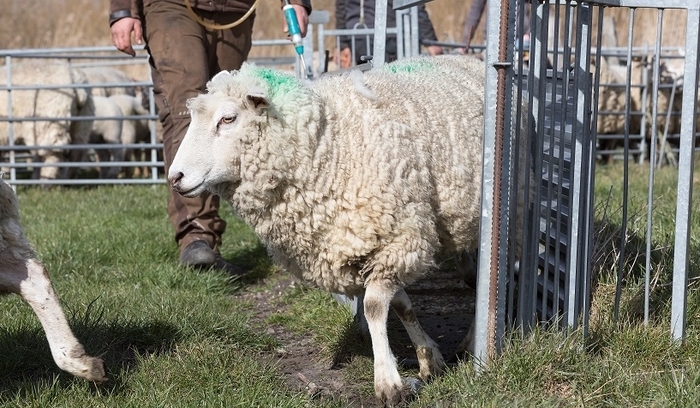The Animal Health Distributors Association has today launched a new campaign to enhance the responsible prescribing process of POM-VPS animal medicines products in order to tackle the issue of anthelmintic resistance.
Launched internally to Registered Animal Medicines Advisors (RAMAs/SQPs) in early March, the campaign will use exclusive data obtained by AHDA through its network of 300 animal medicines distributor companies to outline key action points driving improvements in the industry.
The campaign was initially triggered by anthelmintic resistance in lambs, which is an ongoing issue within the animal health and livestock sector. The campaign has now broadened to include endoparasites, ectoparasites and vaccines and will include all species receiving POM-VPS medicines.
“A number of key industry groups and organisations are well aware of the challenge that anthelmintic resistance poses to farmers and the wider sheep industry, and have already put in place policies and procedures to manage it,” explains Bryan Lovegrove, AHDA Secretary General.
Challenge needs closer attention and awareness
“However, we feel this is an industry challenge that needs closer attention and awareness, so over the last six months AHDA has been focussed on a project of work that has been initially looking at anthelmintic resistance and now more broadly at enhancing responsible prescribing.

“Quite simply, more work needs to be done to make a difference, or the sector is going to be in a difficult position when it comes to anthelmintic resistance. And in our position, with the collective power and influence of our members and the support of other key organisations in the industry, we are driving this forward,” he continues.
“By involving our members, who are in direct contact with livestock owners, our aim is the for the key issues surrounding the prescribing process to be addressed head on.”
AHDA has set out a number of action points to improve animal health and welfare through managing resistance. The campaign will focus on five key areas of action:
- Move from verbal prescription to a mandatory written or recorded prescription
- Compulsory anthelmintic resistance CPD taken within each two-year cycle for RAMAs/SQPs
- Make faecal egg counting a normal and essential process in the prescribing of anthelmintics
- Focus on pack sizes to ensure they meet prescribing requirements
- Aim to create a specific and active animal medicine plan for each flock/herd
“We have carried out some initial research, obtaining information on the number of doses of different anthelmintics sold onto farm in 2020. By looking at the current status of the industry and then its desired destination, we have set out a number of action points – some of which need to be introduced sooner – with other actions and changes to be introduced over the longer term,” adds Mr Lovegrove.
“AHDA’s main purpose is to support RAMAs/SQPs in their role, working with other industry organisations and bodies to protect their right to sell and supply the range of prescription animal medicines across all sectors.
“In raising awareness of the challenges faced by those prescribing the medicines, we hope to change the attitudes and outlooks of the end users towards all elements of prescription process, which will ultimately benefit everyone in the sector.”


